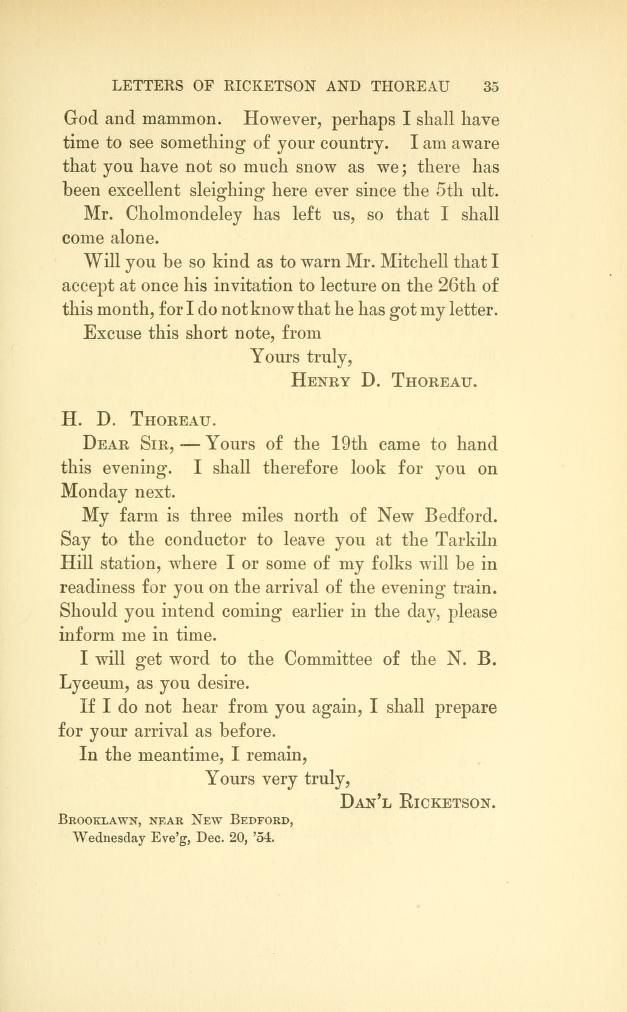Daniel Ricketson grew up in New Bedford in a prominent Quaker family. He gained notoriety as a lawyer, philanthropist, poet, author, benefactor, and abolitionist.
Unhappy with the busy atmosphere of his city home, Ricketson built an estate on a swamp he drained in the mid-1800s. He called it Brook Lawn. The residence was a large farmhouse with wide verandas, a large reception hall, sitting room, library and dining room on the first floor. In those days, great vistas of forest and sea could be seen from the cupola. Here in 1858, he wrote his "History of New Bedford."
Brooklawn covers some 85 acres, from Acushnet Avenue to Ashley Boulevard. Today, it is a park and playground in the city's populous North End, equipped with tennis and basketball courts, baseball fields, a duck pond, ice-skating rink/wading pool, shady trees, sloping lawns and rest rooms.
An apple orchard and garden surrounded the home and a herd of cows grazed on the estate, but the formidable feature of Brook Lawn was a 12 by 14-foot shanty where Ricketson came to read, write and entertain his guests, the literary elite of the time: Henry David Thoreau, Ralph Waldo Emerson, A. Bronson Alcott, George William Curtis, William Ellery Channing, Wendell Phillips, William Lloyd Garrison, and others, affectionately known as the "Shanty Society."
Henry David Thoreau was perhaps the most frequent notable to visit Brook Lawn and Ricketson visited Thoreau at his home on Walden Pond as well. A marker in the center of the park commemorates Brooklawn and the Shanty Society.
Ricketson was noted not just for his learned society friends, but also for his charity. During the Civil War when many were unemployed, Ricketson opened up his estate daily to dispense free milk and bread to those in need. Ricketson's Brooklawn estate and the shanty remained intact at Brooklawn until the later decades of the last century.
Daniel Ricketson grew up in New Bedford in a prominent Quaker family. He gained notoriety as a lawyer, philanthropist, poet, author, benefactor, and abolitionist.
Unhappy with the busy atmosphere of his city home, Ricketson built an estate on a swamp he drained in the mid-1800s. He called it Brook Lawn. The residence was a large farmhouse with wide verandas, a large reception hall, sitting room, library and dining room on the first floor. In those days, great vistas of forest and sea could be seen from the cupola. Here in 1858, he wrote his "History of New Bedford."
Brooklawn covers some 85 acres, from Acushnet Avenue to Ashley Boulevard. Today, it is a park and playground in the city's populous North End, equipped with tennis and basketball courts, baseball fields, a duck pond, ice-skating rink/wading pool, shady trees, sloping lawns and rest rooms.
An apple orchard and garden surrounded the home and a herd of cows grazed on the estate, but the formidable feature of Brook Lawn was a 12 by 14-foot shanty where Ricketson came to read, write and entertain his guests, the literary elite of the time: Henry David Thoreau, Ralph Waldo Emerson, A. Bronson Alcott, George William Curtis, William Ellery Channing, Wendell Phillips, William Lloyd Garrison, and others, affectionately known as the "Shanty Society."
Henry David Thoreau was perhaps the most frequent notable to visit Brook Lawn and Ricketson visited Thoreau at his home on Walden Pond as well. A marker in the center of the park commemorates Brooklawn and the Shanty Society.
Ricketson was noted not just for his learned society friends, but also for his charity. During the Civil War when many were unemployed, Ricketson opened up his estate daily to dispense free milk and bread to those in need. Ricketson's Brooklawn estate and the shanty remained intact at Brooklawn until the later decades of the last century.
Family Members
Advertisement
Explore more
Sponsored by Ancestry
Advertisement

















